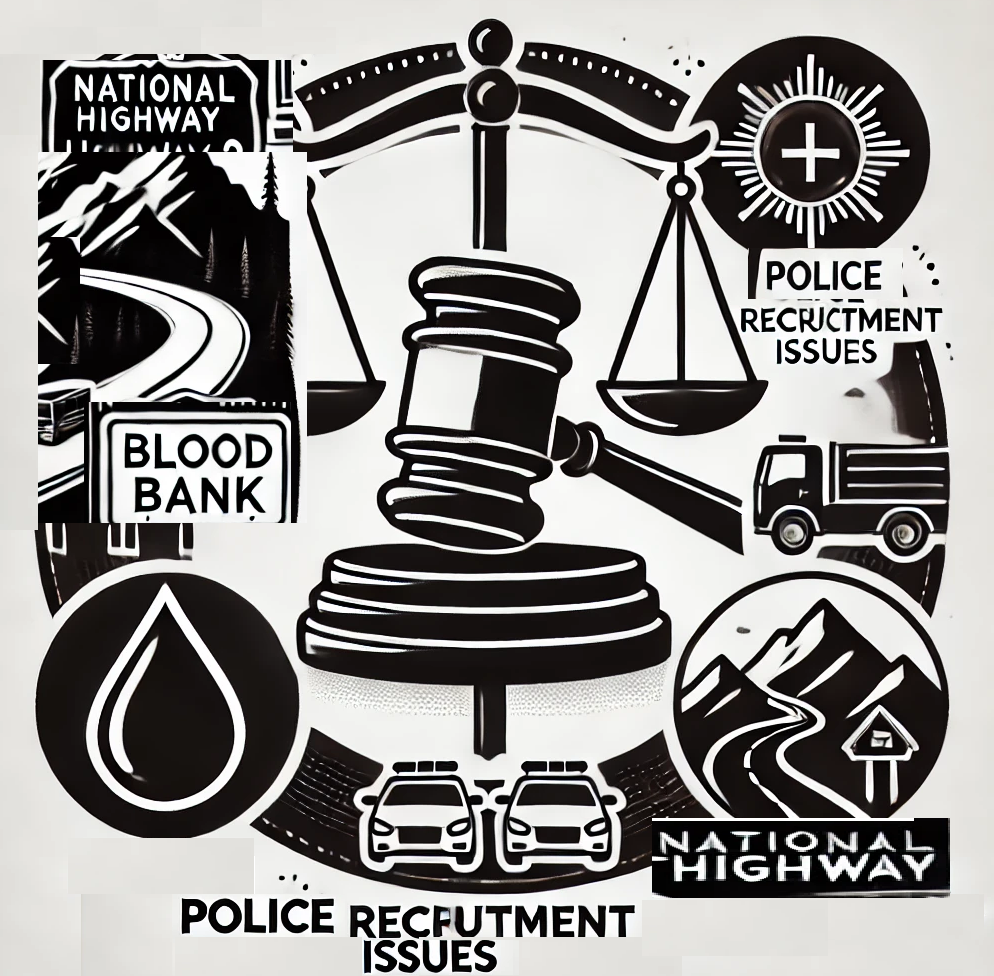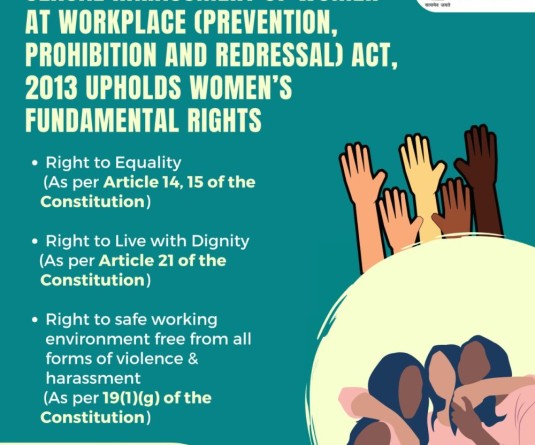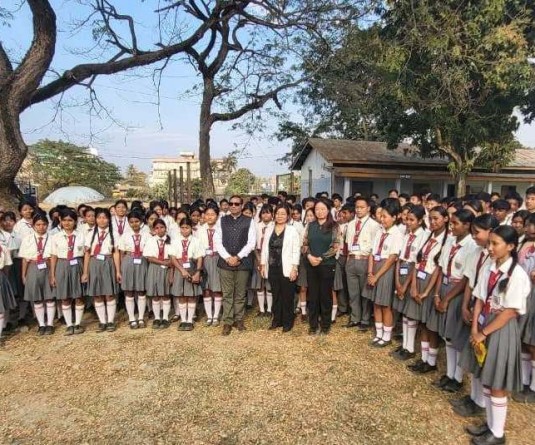Appeal against quashing of appointments SIs and ASIs in Nagaland Police and NH-2 construction works were some key matters heard in the Kohima Bench of Gauhati High Court from November 11-15. (Image for Representational Purposes Only)

Moa Jamir
Dimapur | November 17
The Gauhati High Court Kohima Bench (GHCKB) heard several key matters from November 11-15, including a challenge to the quashing of appointments to certain posts in the Nagaland Police, the progress of work on National Highway-2, and issues related to the blood bank.
SIs and ASIs appointments case
On November 13, the GHCKB Division Bench continued hearing an appeal challenging the single-judge ruling of September 26, 2024, which quashed and set aside the appointments of Sub-Inspectors (SIs) and Assistant Sub-Inspectors (ASIs) in the Nagaland Police.
The primary grievance of the appellants (SIs & ASIs) was that the single-judge decision relied solely on the September 20 judgment of a Coordinate Bench, which nullified the appointment of 935 police constables made between January 2018 and October 2019 without advertisements.
During Wednesday's hearing, counsel for the appellants contended that the SI and ASI appointments were made in accordance with the Nagaland Police Manual and under the delegated powers of the Director General of Police (DGP), and do not require public advertisements.
The counsel further asserted that the circumstances surrounding the SI and ASI recruitment were distinct from the constable case and that the reliance on certain Supreme Court precedents by the single judge was misplaced.
Additionally, it was argued that concessions made before the single judge by State counsels and some appellants' representatives were not supported by factual records and were made without proper instructions. The counsel urged the Court to allow the appellants to present all relevant materials through an affidavit.
In contrast, counsel for the private respondents maintained that the appointments were arbitrary, as they lacked public advertisements and violated principles of fairness and transparency. She argued that the single judge's decision was consistent with the constable case ruling, which remains unchallenged and final.
She also informed the Court that a review petition regarding the matter is pending before the single bench and scheduled for a hearing on November 19, requesting the division bench to await its outcome.
The Additional Advocate General for the State supported the respondent's submission.
After reviewing the submissions, the Division Bench, comprising of Justice Soumitra Saikia and Justice Kaushik Goswami, observed that the issues raised required further consideration.
The Court decided to examine relevant departmental records to verify the claims and listed the hearing to November 27, directing the parties to maintain the status quo until then.
Status of blood banks in all districts
In a separate matter, the GHCKB directed State respondents to submit a detailed affidavit within four weeks regarding the status of blood banks and blood storage units in all 17 districts of Nagaland.
The directive came during the hearing of a Public Interest Litigation (PIL) concerning the implementation of the National Blood Policy and guidelines issued by the Union Ministry of Health & Family Welfare.
As previously directed, the Mission Director of the National Health Mission submitted an affidavit confirming that equipment for blood banks in Tuensang, Kiphire, Mon, and Phek districts had been received, installed, and were functioning as required.
However, the Court emphasised that access to adequate medical facilities, including blood banks and storage units, is crucial, particularly in rural areas. Accordingly, it directed State respondents to provide a comprehensive status report on the issue and listed the matter for further hearing after 4 weeks.
Kohima-Mao Road Project
On November 13, the Division Bench instructed the National Highways & Infrastructure Development Corporation Limited (NHIDCL) to submit a timeframe for completing the remaining portion of the Kohima.
The directive followed an affidavit filed by the NHIDCL on November 8, which lacked a specific timeline for steps to be undertaken after the termination of the previous contractor's agreement.
The Amicus Curiae of the PIL (sour motu), meanwhile, highlighted before the court that that the working season in Nagaland and the North-East is primarily during winter and diminishes from April due to the onset of rains. Thus, he orally stressed the importance of expediting works during this window period.
Considering the submissions, the Division Bench directed the NHIDCL to file a consolidated affidavit specifying the timeframe for each step proposed and scheduled the matter for further hearing in two weeks.
Equal pay for Dobashis
On November 14, 2024, the Gauhati High Court Kohima Bench (GHCKB) directed the Government of Nagaland to extend the benefits of "equal pay for equal work" to 38 Dobashis (Grade-II) appointed on contingency, casual, or temporary basis between 1996 and 2014.
The petitioners approach the Court seeking equal remuneration as their regular counterparts under the latest Revision of Pay (ROP) Rules of 2017.
The petitioners' counsel cited Supreme Court rulings, including State of Punjab vs. Jagjit Singh and Sabha Shankar Dube vs. Divisional Forest Officer, which affirmed that temporary employees performing similar duties to regular staff are entitled to the same pay scale.
He also highlighted a letter from the Joint Commissioner of Nagaland, confirming that the petitioners performed the same duties as regular Dobashis, and also referenced the GHCKB's Hevishe Sema case, which upheld this principle.
In response, the state government's counsel argued that the petitioners were governed by the Nagaland Work Charged and Casual Employees Regulation Act, 2001, and were not entitled to ROP 2017 benefits as they were not appointed to sanctioned posts. He also relied on some apex court’s rulings.
However, Justice Goswami ruled in favour of the petitioners, directing the state government to pay them the minimum pay scale extended to regular Dobashis, effective from March 19, 2022, the date of filing the petition.
He relied on the law laid down by the Supreme Court on the ‘equal pay for equal work’ principle, as well as the Hevishe Sema case, to arrive at his decision.
This follows a previous GHCKB decision in September 2022, which similarly directed the government to pay ex-cadre Dobashis the same pay as regular Grade-II Dobashis.






